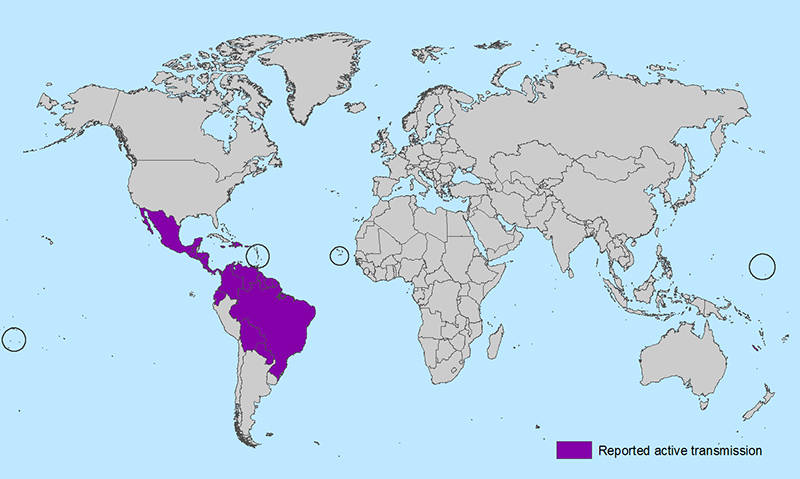
Now here's a widget created by Google showing the spread of, not the virus, but searches related to it since October.
Click here for a full-screen map.
This is not necessarily unexpected or even unwarranted, considering the potential awful effects of the virus and the lack of a vaccine.
Yet, the Ebola hysteria in the U.S. presents us with a cautionary tale, according to Stephen Gehlbach, dean emeritus of the School of Public Health at the University of Massachusetts-Amherst. Writing for WBUR in Boston, he wrote:
Such distressing history should warn that Zika could provoke similar behaviors. How should we react?
By reasoned response. The health concerns are real. But science should supplant our fear, and evidence not emotion be our guide. While we wait for clarity, we need to learn to live with some uncertainty. The health risks that surround us can be reduced but never eliminated. As we learn more about this disease and monitor its spread, rational strategies to minimize risk will emerge.
If you're a citizen of the United States, it's useful to note that officials here think widespread transmission in this country is unlikely, due to a climate that is mostly inhospitable to the species of mosquitoes spreading the virus, as well as the pervasive use of air conditioning and window screens. (Sexual transmission, however, is of increasing concern.) According to the CDC, there are currently 193 cases of people in the U.S. who acquired the disease while traveling internationally and zero cases of local transmission by mosquito.
And while countries to our south are getting hard hit by the virus, an increase in microcephaly and other devastating neonatal malformations -- so widely publicized -- has been limited to Brazil and French Polynesia," according to the current Zika situation report from WHO.
Meanwhile, high tech is on the case. Google has put a volunteer team of its engineers and data scientists to work in building a data platform to aid in the global effort to stop the spread of the disease.
"Ultimately, the goal of this open source platform is to identify the risk of Zika transmission for different regions and help UNICEF, governments and NGO’s decide how and where to focus their time and resources," Google said on its official blog last week. "This set of tools is being prototyped for the Zika response, but will also be applicable to future emergencies."
And a new, rapid test for the virus, which would allow health officials to better identify infection hot spots and intervene accordingly, is being tested.

